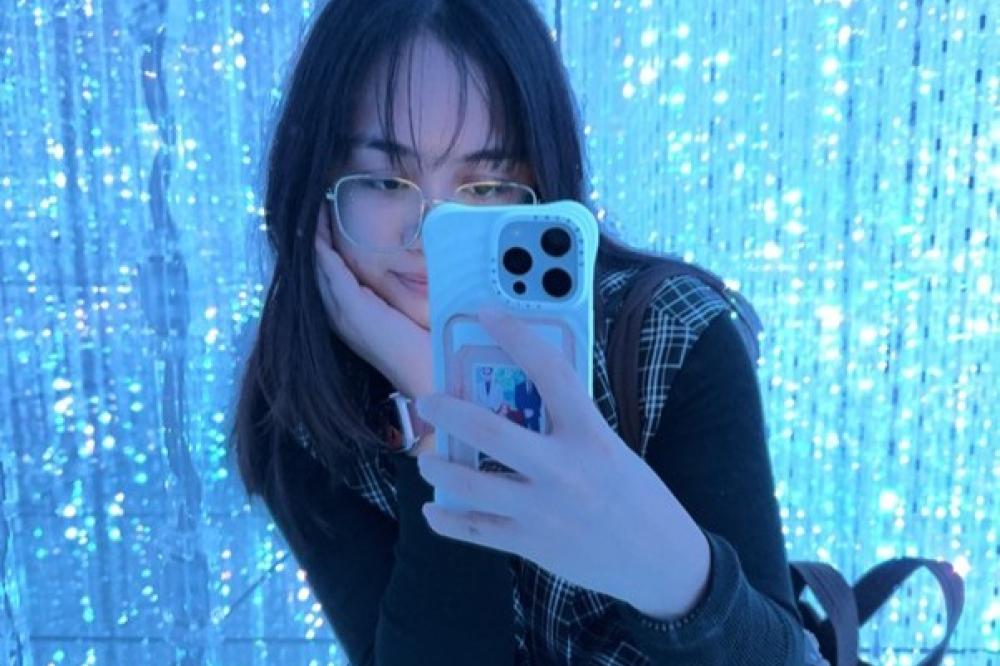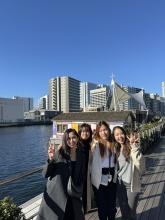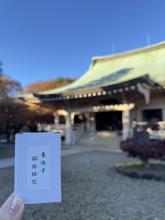
About The Course
This course explores the challenges and promises of diversity through theoretical and applied approaches to the management of social differences in institutions and societies in Asia. Through discussions of the ways in which identity and multiculturalism have been understood and practiced, students learn to apply strategies that consider individual, group, and systemic factors that underlie the management of differences on the basis of socioeconomic status, sex, gender identity, citizenship, race, ethnicity, religion, sexual orientation, and disability.
The Term 1, 2024-25, run of the course focused on Japan – a modern, globalized country that often finds itself at odds with deeply ingrained traditions and social norms. With more immigrants, more women in leadership, a rapidly aging population, and fewer marriages, and births, Japan presents a complex and intriguing landscape for the study of diversity management as more people and groups encounter tensions with societal pressures to conform.
Reflection
Hey there, Kimberley here! To be honest, when I’d first taken that leap of faith and clicked on the email that began everything, I knew nothing of what to expect. Yes, the course’s outline is written clearly and precisely, saying everything of ‘what to expect’, but what it does not say is something it simply cannot: what you yourself will experience. And oh wow did I go through the rollercoaster of a lifetime (in the best way).
Social Sciences? Not something I’ve really ever done. But for some reason, a burst of confidence and ‘I’ll regret if I don’t go’ had me pulling through with it despite all the challenges along the way because ‘the experience would be worth it’—and it was. Perhaps I could say I’ve learned some of the most valuable lessons, gained new perspectives, and become a whole new self ready to go back and challenge the bars I’d grown up holding around myself.
Sounds like a cringey exaggeration, I know. But through this SMU-XO experience alone, I’ve taken on so many firsts I can’t even list them down anymore because each moment here in this Land of the Rising Sun (日本) it was like I felt the sun itself even in the cold.
Diversity is a lived experience ingrained in the culture of the world around us, something so precious and colourful in the way it paints our lives, but at the same time something so unique—especially in the way it is weaved through the fabrics of different societies. Yet rarely do we directly address it or see it be spoken about outside corporate ESG and CSR initiatives, civil education (at least for Singapore), and the social studies lessons from our childhood. Terms like DEI (Diversity, Equity, and Inclusion) come with many similar derivations but they all boil down to the same concept of ‘embracing differences and empowering these as we build environments that welcome all’. Easier said than done.
As we spent days exchanging opinions with each other while learning in class from our dearest professor Jack Ho, various guest speakers, and visited companies in Japan to learn more about their challenges and approaches, one main question stood out—how do we get people to really understand and care about DEI for what it can do both societally and business-wise? A tough cookie to crack, one that all boils down to finding something in-line with already existing societal values and goals.
To hopefully wrap up this ever-growing reflection piece, I would like to highlight a key concept that really stood out during our visit to Japan (other than trying and failing to find our way in Tokyo Station time and time again and the importance of the brilliant invention of heat packs for winter): 和 (wa). 和 speaks of an integral concept in Japanese culture derived from traditional family values, and the idea of putting the whole before one’s self. We first came across 和 during the kimono cultural experience with Michael Yui-san that opened the whole trip, but it is something that was in every part of our experience in Japan itself.
和 was even read between the lines of each company visit which spoke of ‘the whole’, ‘the team’, and with mechanisms of neat structural organization with extreme precision and detail just as the Japanese people are well known for having. Even from interviews, and from our experience with the lovely Gakushuin University and Waseda University students we had met along the way, the cultural difference was clear (but not in a bad way, really—I just hope we did not scare them off too much but from the endless waving and dragged out goodbyes with smiles and tears I can hopefully say we thankfully did not).
In Japan, so much attention and focus is put on unspoken communication. Each word choice, intonation, body language sign, is important in getting the nuance of the spoken language. And I think this is beautiful, actually, especially with the amount of depth that can go into one simple statement.
Over the course of this programme, and I guess sometimes in day-to-day life, ‘tradition’ can easily be framed as something like ‘being too slow’, ‘behind the times’, or ‘not progressive’. But I think rather than ‘changing’, ‘integrating’ is so much more important and valuable. After all, so much more can be gained by finding a unique path rather than forcing oneself to fit into the rigid box of what society thinks is right. And I think this is reflected in many of our talks about DEI too.
Oftentimes, when we think of a solution, the immediate thought is change. But this does not work so simply. Especially in a country, especially in a country with such a vibrant and deeply ingrained culture and tradition that has continued to persist today even as international influences question and come by (and in a way we had too). We’re all different, and there is beauty and so much potential in this. Singapore’s history is a testament to this, and so is our class GA206, and even our dearest group 私は スター which saw students from Psychology, Economics, Business, and Law meeting to come up with a project hopefully all of us can be proud of as we walked hand in hand with students from Gakushuin University on this journey.
Words cannot fully encompass all that I’ve gained from this precious experience, and I just hope that these threads added to the tapestry of my life continue to show and spread their colour as I walk on my journey.
No amount of ‘Thank Yous’ will ever be enough but allow me to share at least these:
Thank you SMU-X office for this opportunity. Thank you to the Jackest Jack Professor Jack Ho for your enthusiasm and guidance. Thank you Mas for being a fun-loving pillar of a TA with so much heart. Thank you Hsiu Shian, Constance, and Fang Qi for being groupmates I’ve learned so so much from. Thank you Yuka-san, Minako-san, Sakura-san, and Shiori-san for being so kind, welcoming, and passionate about sharing. Thank you GA206 for being my light <3.
Thank You Notes to Benefactors
Dear Benefactors,
Thank you for giving me this precious opportunity to explore not just the world but also myself. Throughout the course of this journey, I’ve gained many invaluable experiences with this group of once-strangers both in Singapore and Japan as we exchanged views, ideas, cultures, and more as we learned from industry leaders and each other through the bustling streets of Tokyo.
Never would I have thought that my first trip overseas would have been in such a way, and it is a core memory I will keep with me and hopefully keep growing as I put into action the lessons learnt and cherish the bonds made. Because even though the course itself has ended, the values and experiences earned will continue.
With all my heart, thank you once again for helping spark this girl’s light once more.




